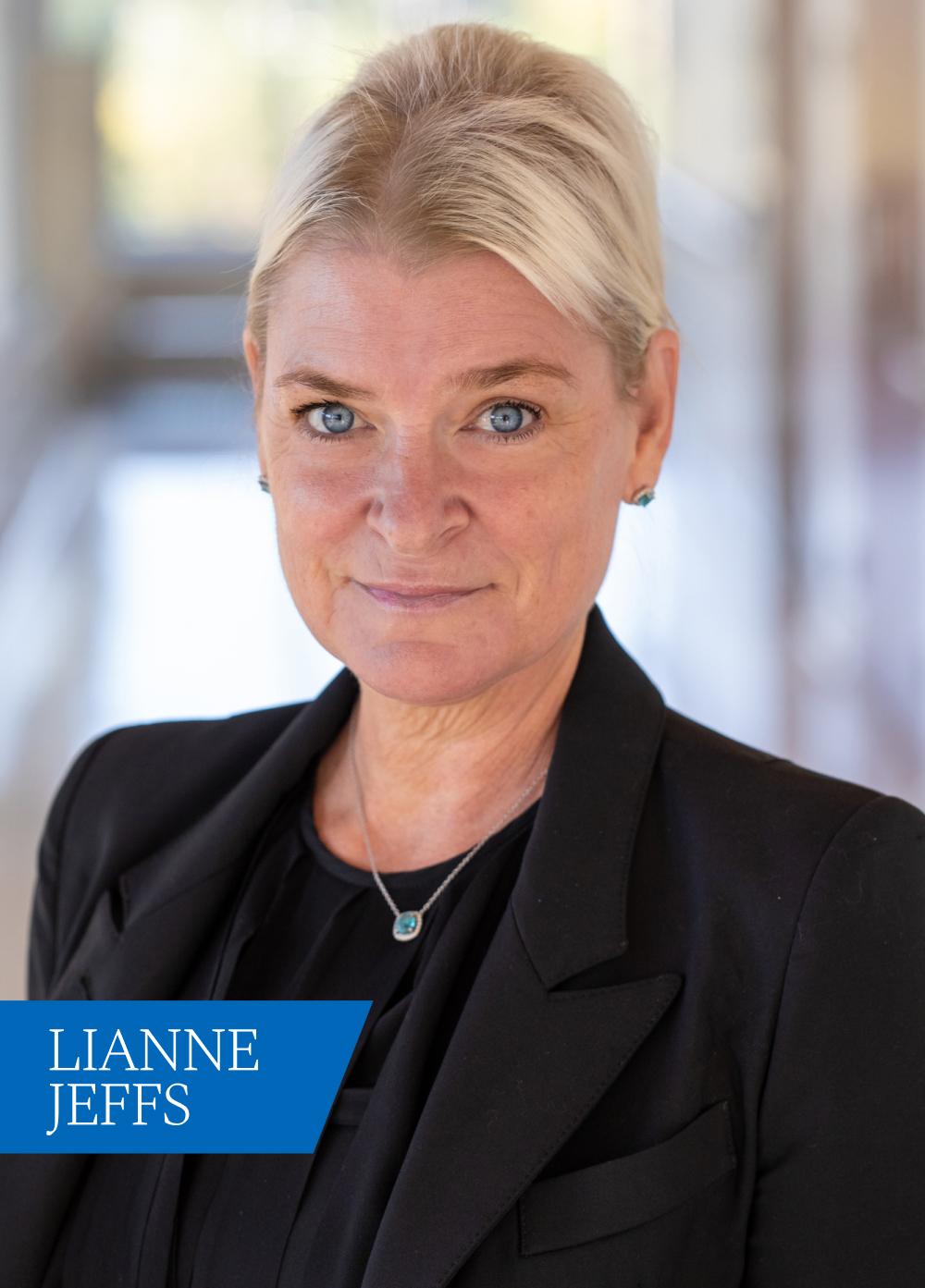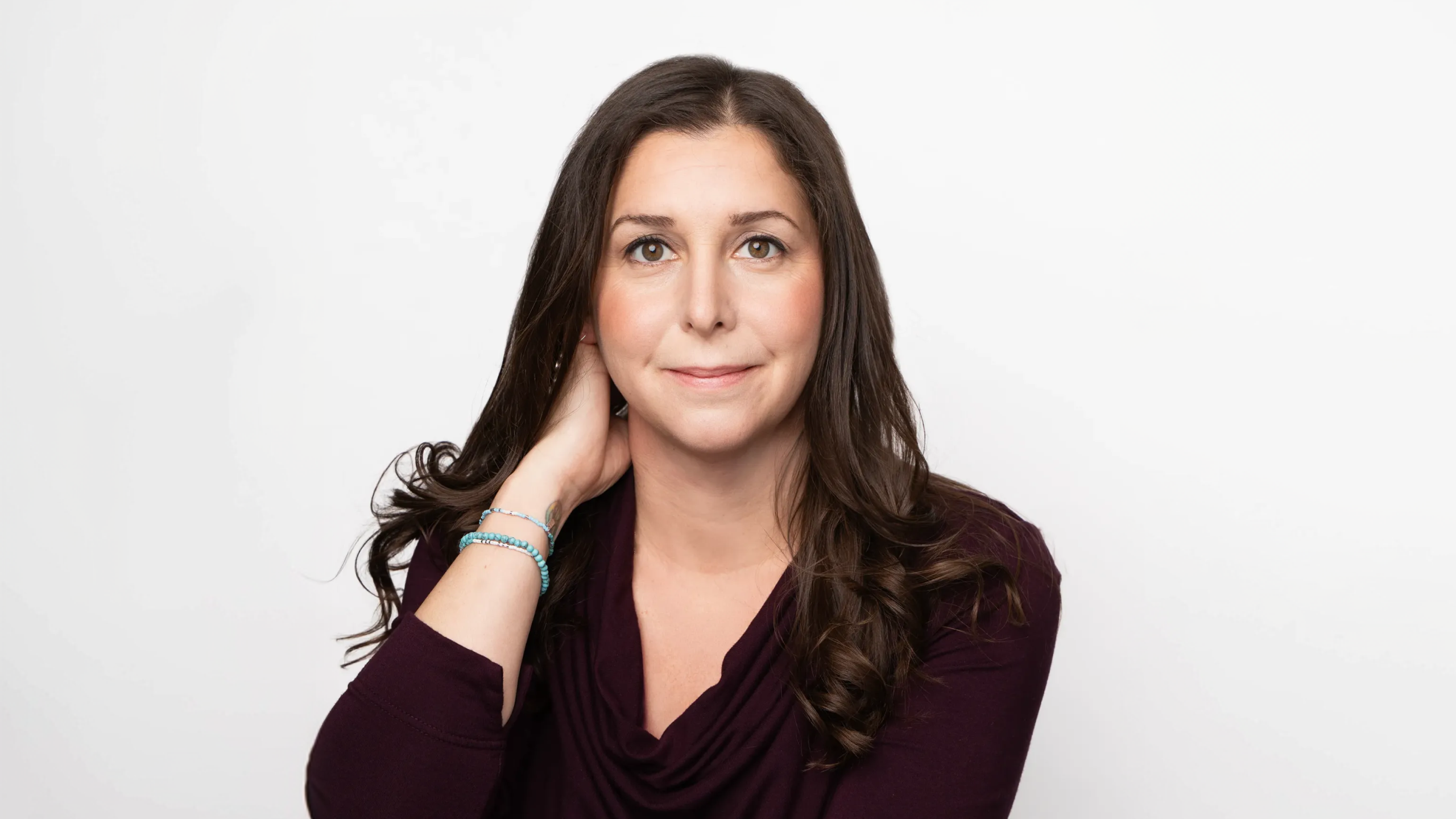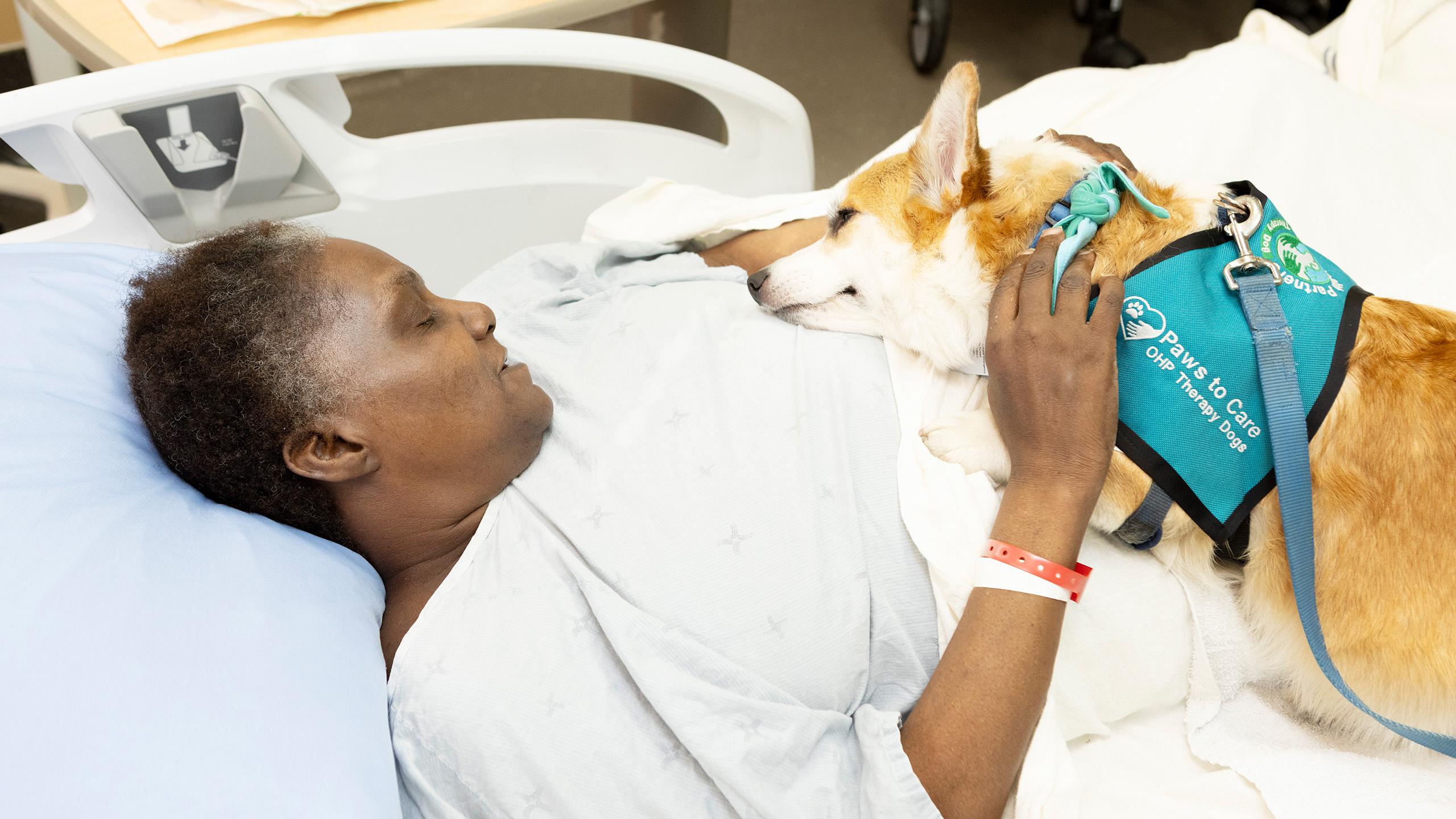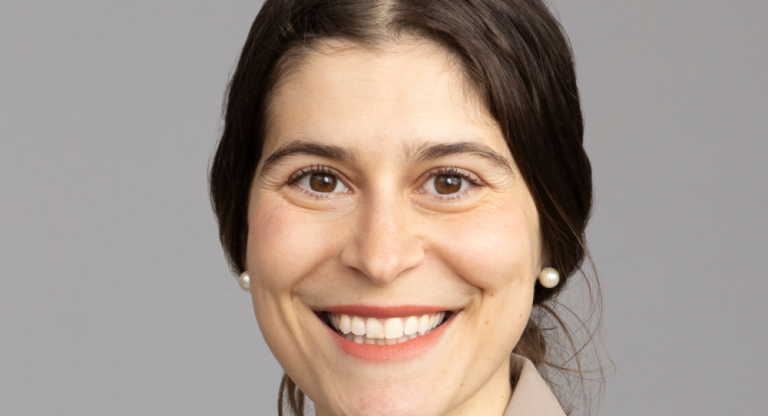Meet the Minds: Dr. Lianne Jeffs is uncovering the science behind compassionate care

In our Meet the Minds series, we’re opening the doors to the visionary researchers shaping the future of health care at Sinai Health. You’ll get to know the innovators behind the breakthroughs — their passions, discoveries and the impact they’re making on lives today and tomorrow.
Discover the science behind Sinai Health’s compassionate care strategy with Dr. Lianne Jeffs, Chief Scientific Officer, Science of Care Institute and Research and Innovation Lead at Sinai Health and Senior Clinician Scientist with the Lunenfeld-Tanenbaum Research Institute. Her work aims to create health-care experiences that are not only scientifically informed but also deeply human.
Q. What is fundamental compassionate care, and why is it such an important aspect of a person’s health journey?
Dr. Jeffs: Fundamental compassionate care is multi-dimensional. It involves respecting and meeting people’s physical, psychosocial safety and well-being needs by developing trusting relationships between the health-care team, the person being cared for and their care partners. Providing fundamental compassionate care requires health-care providers to have a positive work environment that enables them to recognize, understand and engage emotionally with another’s concerns, distress, pain or suffering – and then take action to respond to these fundamental care needs in a holistic manner.
When patients, care partners and family members receive compassionate care, we have seen improvements in quality of life, hospital experience, clinical outcomes, patient safety and their overall recovery.
Q. Why is it crucial to advance research into compassionate care now, more than ever?
Dr. Jeffs: Fundamental compassionate care is not just about improving patient outcomes and experiences– it also improves outcomes for health-care providers. When health-care providers engage in compassionate care, they experience improved relationships and communication with their team, experience less stress, burnout and compassion fatigue. The act of providing compassionate care has also been found to improve attentiveness and vigilance of health-care providers, that in turn, decreases the likelihood of errors and patient safety events from occurring.
It’s critical to focus on the fundamentals of care as we continue to recover from the lasting impact of COVID-19. We know from countless studies globally that fundamental, compassionate care – from washing people’s hair and bathing, brushing teeth, getting people out of bed and moving, to connecting with patients to discuss their care plan needs – was eroded during the pandemic. But the health-care workforce also suffered, and we’re seeing huge human resource shortages across our health-care system as a result.
So, part of the work we’re doing is addressing the question, ‘how do we create conditions in our environment so that our people are able to build back their resilience and capacity for compassion’. In turn, they can work with patients and care partners to ensure that they're being heard and their fundamental care needs are being met. All this work is coming together in a compassionate care strategy that we're piloting on two clinical units, with the plan to roll out across the entire Hospital in the next three years.
Q: Can you tell us more about how you’re using the insights from your research to empower clinicians to feel more supported as they deliver care?
Dr. Jeffs: A key theme that I'm paying attention to is how we equip our clinicians to build back their resilience – the ability to successfully adapt and maintain their well-being in the face of challenges and difficult circumstances. We’re also looking at how to cultivate a health system that looks at care from the lens of what matters most to patients and their care partners, then uses that information to support evidence-informed improvements and innovations in care across the entire health-care system at Sinai Health.
The goal of what is referred to as a Person-Centred Learning Health System is to create an environment where data and evidence inform how we embed fundamental compassionate care across our system. One of my research initiatives explores how leadership education can enhance the resilience of our health-care workforce and embed fundamental, compassionate care within health-care organizations across Canada. This leadership education is part of the compassionate care strategy referred to earlier.
We want to understand whether this type of learning can improve outcomes like staff resilience, job satisfaction and ability to learn, and if it can reduce burnout among staff. We’re also paying close attention to how this education can be applied elsewhere/more broadly – how feasible is it, how is the program accepted, can it be scaled and sustained over time – so other health-care organizations can achieve similar outcomes.
Q. How do you measure if compassionate care is happening in practice?
Dr. Jeffs: Two years ago, in collaboration with members of our Patient and Family Advisory Committee, we selected by consensus a 12-item Schwartz Center Compassionate Care Scale as a tool to help us measure compassionate care at Sinai Health. This scale is based on the gold standard of how compassionate care is measured in different hospital systems and has been proven to have excellent consistency and reliability. Through co-design sessions, we created a survey that could be sent to patients after they’ve had an experience with Sinai Health. We ask questions like, “did you feel like you were treated with respect?” or “did your care team answer your questions?”. We also include an open ended question that asks to describe a caring or uncaring experience.
These surveys are now sent out to patients on a rotating basis, including more complex patient groups who previously were not asked for feedback. We’re able to take the responses and turn them into actionable feedback for our units. We are also surveying our staff on an annual basis using similar survey questions. We are using the data from both surveys to drive and monitor areas where there is room for improvement and to celebrate and tweak what we’re doing right in advancing compassionate care at Sinai Health.
Q: You lead the Science of Care Institute (SCI), which houses the Centre for Nursing Excellence. How does research at SCI help contribute to the health system transformation you’re hoping to accomplish?
Dr. Jeffs: Our purpose at our Science of Care Institute is to make compassionate care matter by moving ideas to improve care and our care environment into action through inquiry, innovation, improvement and implementation.
We encourage nurses, other clinicians, and staff to identify gaps they observe in their daily practice and come up with solutions on how to address the gaps. It could be an idea around how to improve wound care, a virtual education program for breast cancer patients or a peer support program for new nurses. At SCI, we are a catalyst for discovery and learning. We are empowering our Sinai Health community to explore how interventions aimed at advancing fundamental, compassionate care can effectively improve outcomes and experiences for patients and create better pathways for our care teams.
Q: When you think about the future of research in fundamental, compassionate care in Canada, what makes you most excited?
Dr. Jeffs: As a health-care workforce, we have the honour and privilege of being in a unique position due to our interactions and connections with patients and care partners. It is through these relationships that we see gaps, inefficiencies and opportunities to address pain points that are often centred around meeting fundamental, compassionate care needs.
As a collective community of ‘curious, compassionate clinicians and staff,’ we are demonstrating how simple, well-organized ideas can have a big impact on patient experiences and outcomes, our work environment, our health-care ecosystems and society by taking them to action and instilling joy and meaning in clinical practice and daily work. Now more than ever we need to recover and build back resilience through how we care for patients and care partners, and how we care for each other. And I’m incredibly excited about the opportunity to reclaim and enhance fundamental, compassionate care at Sinai Health and beyond.
How you can help
Dr. Lianne Jeffs is leading a movement that believes in centering care delivery on individual needs, embracing the nuances of health equity, and engaging people by understanding their lived experience, beliefs and values. Through her passion for driving system change and leadership in cultivating human-focused spaces for discovering, learning, sharing and healing, she is paving the way for a health-care experience where dignity, empathy and respect is at the core – both for patients and health workers.
Want to support transformational research like this? Donate today. Please select Research - Lunenfeld-Tanenbaum Research Institute from the gift designation dropdown menu.










